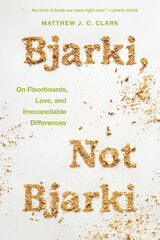28 start with C start with C
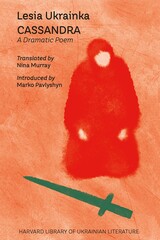
Cassandra, the daughter of King Priam of Troy, is cursed with the gift of true prophecies that are not believed by anyone. She foretells the city’s fall should Paris bring Helen as his wife, as well as the death of several of Troy’s heroes and her family. The classic myth turns into much more in Lesia Ukrainka’s rendering: Cassandra’s prophecies are uttered in highly poetic language—fitting for the genre of the work—and are not believed for that reason, rather than because of Apollo’s curse. Cassandra as poet and as woman are the focal points of the drama.
Cassandra: A Dramatic Poem encapsulates the complexities of Ukrainka’s late works: use of classical mythology and her intertextual practice; intense focus on issues of colonialism and cultural subjugation—and allegorical reading of the asymmetric relationship of Ukrainian and Russian culture; a sharp commentary on patriarchy and the subjugation of women; and the dilemma of the writer-seer who knows the truth and its ominous implications but is powerless to impart that to contemporaries and countrymen.
This strongly autobiographical work commanded a significant critical reception in Ukraine and projects Ukrainka into the new Ukrainian cultural canon. Presented here in a contemporary and sophisticated English translation attuned to psychological nuance, it is sure to attract the attention of the modern-day reader.
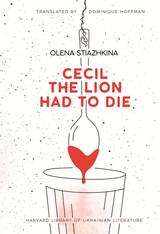
In 1986 Soviet Ukraine, two boys and two girls are welcomed into the world in a Donetsk maternity ward. Following a Soviet tradition of naming things after prominent Communist leaders from far away, a local party functionary offers great material benefits for naming children after Ernst Thälmann, the leader of the German Communist Party from 1925 to 1933. The fateful decision is made, and the local newspaper presents the newly born Ernsts and Thälmas in a photo on the front page, forever tying four families together.
In Cecil the Lion Had to Die, Olena Stiazhkina follows these families through radical transformations when the Soviet Union unexpectedly implodes, independent Ukraine emerges, and neoimperial Russia occupies Ukraine’s Crimea and parts of the Donbas. Just as Stiazhkina’s decision to transition to writing in Ukrainian as part of her civic stance—performed in this book that begins in Russian and ends in Ukrainian—the stark choices of family members take them in different directions, presenting a multifaceted and nuanced Donbas.
A tour de force of stylistic registers, intertwining stories, and ironic voices, this novel is a must-read for those who seek deeper understanding of how Ukrainian history and local identity shapes war with Russia.
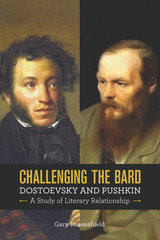

Drawn from a Festschrift honoring George G. Grabowicz, the essays in this collection examine central issues in Ukrainian literature and culture with special attention to the comparative and deconstructive approaches that reflect the honoree’s own work. All major time periods are covered: the onset of literacy in Kyivan Rus´; the cultural intersections of the early modern period; the gradual but persistent articulation of a national discourse in the new imperial reality (culminating with the defining figure of Taras Shevchenko); the vagaries of the long nineteenth century; twentieth-century modernism, ideology, and scholarship; and Ukraine’s intellectual position today.
The essays also variously explore the interface of literature, language, theater, and film, and touch upon the strictures and distortions imposed by censorship and ideology, uncharted currents of reception, and the interpretation of key texts, particularly the light they shed on the “political unconscious.” Special attention is devoted to the transnational functions of Ukrainian literature in the modern period. A full bibliography of Grabowicz’s foundational contribution to the field completes the collection.
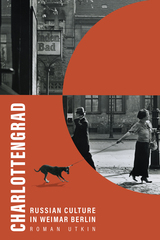
By closely examining the intellectual output of Charlottengrad, Roman Utkin explores how community members balanced their sense of Russianness with their position in a modern Western city charged with artistic, philosophical, and sexual freedom. He highlights how Russian authors abroad engaged with Weimar-era cultural energies while sustaining a distinctly Russian perspective on modernist expression, and follows queer Russian artists and writers who, with their German counterparts, charted a continuous evolution in political and cultural attitudes toward both the Weimar and Soviet states.
Utkin provides insight into the exile community in Berlin, which, following the collapse of the tsarist government, was one of the earliest to face and collectively process the peculiarly modern problem of statelessness. Charlottengrad analyzes the cultural praxis of “Russia Abroad” in a dynamic Berlin, investigating how these Russian émigrés and exiles navigated what it meant to be Russian—culturally, politically, and institutionally—when the Russia they knew no longer existed.

Despite its substantive historical depth, Chasing Greatness is not a book of history. Rather, it is a synthesizing social science work inspired by the continental tradition of the critical history of modernity. As such, the book is more about the present than about the past. Its main aim is to expose and explain the rich conceptual baggage behind Russia’s unceasing great power rhetoric (domestic and international) and how this rhetoric drives the current international crises involving Russia.
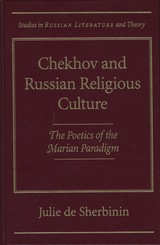
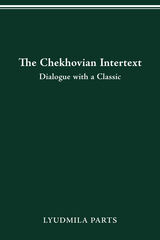
In The Chekhovian Intertext Lyudmila Parts explores contemporary Russian writers’ intertextual engagement with Chekhov and his myth. She offers a new interpretative framework to explain the role Chekhov and other classics play in constructing and maintaining Russian national identity and the reasons for the surge in the number of intertextual engagements with the classical authors during the cultural crisis in post-perestroika Russia.
The book highlights the intersection of three distinct concepts: cultural memory, cultural myth, and intertextuality. It is precisely their interrelation that explains how intertextuality came to function as a defense mechanism of culture, a reaction of cultural memory to the threat of its disintegration.
In addition to offering close readings of some of the most significant short stories by contemporary Russian authors and by Chekhov, as a theoretical case study the book sheds light on important processes in contemporary literature: it explores the function of intertextuality in the development of Russian literature, especially post-Soviet literature; it singles out the main themes in contemporary literature, and explains their ties to national cultural myths and to cultural memory. The Chekhovian Intertext may serve as a theoretical model and impetus for examinations of other national literatures from the point of view of the relationship between intertextuality and cultural memory.
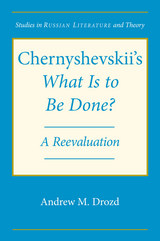
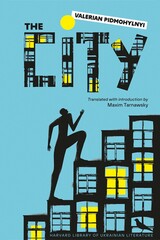
Valerian Pidmohylnyi’s The City was a landmark event in the history of Ukrainian literature. Written by a master craftsman in full control of the texture, rhythm, and tone of the text, the novel tells the story of Stepan, a young man from the provinces who moves to the capital of Ukraine, Kyiv, and achieves success as a writer through a succession of romantic encounters with women.
At its core, the novel is a philosophical search for harmony in a world where our intellectual side expects rational order, whereas the instinctive natural world follows its own principles. The resulting alienation and disorientation reflect the basic principles of existential philosophy, in which Pidmohylnyi is close to his European counterparts of the day.

Dubbed by his fellow Futurists the "King of Time," Velimir Khlebnikov (1885-1922) spent his entire brief life searching for a new poetic language to express his convictions about the rhythm of history, the correspondence between human behavior and the "language of the stars." The result was a vast body of poetry and prose that has been called hermetic, incomprehensible, even deranged. Of all this tragic generation of Russian poets (including Blok, Esenin, and Mayakovsky), Khlebnikov has been perhaps the most praised and the more censured.
This first volume of the Collected Works, an edition sponsored by the Dia Art Foundation, will do much to establish the counterimage of Khlebnikov as an honest, serious writer. The 117 letters published here for the first time in English reveal an ebullient, humane, impractical, but deliberate working artist. We read of the continuing involvement with his family throughout his vagabond life (pleas to his smartest sister, Vera, to break out of the mold, pleas to his scholarly father not to condemn and to send a warm overcoat); the naive pleasure he took in being applauded by other artists; his insistence that a young girl's simple verses be included in one of the typically outrageous Futurist publications of the time; his jealous fury at the appearance in Moscow of the Italian Futurist Marinetti; a first draft of his famous zoo poem ("O Garden of Animals!"); his seriocomic but ultimately shattering efforts to be released from army service; his inexhaustibly courageous confrontation with his own disease and excruciating poverty; and always his deadly earnest attempt to make sense of numbers, language, suffering, politics, and the exigencies of publication.
The theoretical writings presented here are even more important than the letters to an understanding of Khlebnikov's creative output. In the scientific articles written before 1910, we discern foreshadowings of major patterns of later poetic work. In the pan-Slavic proclamations of 1908-1914, we find explicit connections between cultural roots and linguistic ramifications. In the semantic excursuses beginning in 1915, we can see Khlebnikov's experiments with consonants, nouns, and definitions spelled out in accessible, if arid, form. The essays of 1916-1922 take us into the future of Planet Earth, visions of universal order and accomplishment that no longer seem so farfetched but indeed resonate for modern readers.

Dubbed "a Columbus of new poetic continents" because of his search for a poetics as diverse as the universe itself, Velimir Khlebnikov is the creator of some of the most extraordinary poems in the Russian language. Sometimes surreal, sometimes esoteric, but always dazzlingly innovative, the 192 poems in this volume range broadly from the lyrical to the epic.
One of the founders of Russian Futurism, Khlebnikov spent his entire brief life searching for a new poetic language to express his convictions about the rhythm of history and the connection between the truth of a poet's language and the cosmic truth about the universe. His poetry is characterized by often radical experimentation with language and words, a forceful utopian vision, complex theories of time and history, and multiple poetic personae: from an infantry commander to a Carthaginian war hero, from Cleopatra's paramour to the letters of the alphabet. Completing the Collected Works of Velimir Khlebnikov, Selected Poems gives us insight into the imagination of a remarkable artist.

Velimir Khlebnikov, who died in 1922 at the age of thirty-six, is one of the great innovators of literary modernism. In Russia a powerful and growing mythology surrounds this Futurist poet and his reputation elsewhere continues to mount.
The second volume of the Collected Works consists of Khlebnikov's fiction (thirty-five short stories, dreams, mysteries, and fanciful folktales), his plays, and his unique supersagas, a syncretic genre he created to encompass his iconoclastic view of the world. Paul Schmidt's are the first translations of these works into English. They chronicle the artist's imagination in his feverish search for a poetics that could be as diverse as the universe itself.
The fictions, ranging from the mysterious "Murksong" to the epic "Yasir," show a great variety of styles and themes. But it is in the dramatic text that we best see Khlebnikov's struggle to find a workable form for his vision. The Girl-God, symbolist-inspired, is a mélange of stylistic shifts and impossible scene changes. In The Little Devil, The Marquise des S., and the sardonic Miss Death Makes a Mistakes, Khlebnikov finally finds a stageable theatrical form, in a mixture of satire, colloquial speech, and poetic reflections on art and immortality. The dramatist reaches even higher in the supersagas Otter's Children and Zangezi, achieving a Wagnerian fusion of action, poetry, history, theory, and the musical rhythms of incantation.

Dislodging the avant-garde from its central position in the narrative of Soviet art, Collective Body presents painter Aleksandr Deineka’s haptic and corporeal version of Socialist Realist figuration as an alternate experimental aesthetic that, at its best, activates and organizes affective forces for collective ends. Christina Kiaer traces Deineka’s path from his avant-garde origins as the inventor of the proletarian body in illustrations for mass magazines after the revolution through his success as a state-sponsored painter of monumental, lyrical canvases during the Terror and beyond. In so doing, she demonstrates that Socialist Realism is best understood not as a totalitarian style but as a fiercely collective art system that organized art outside the market and formed part of the legacy of the revolutionary modernisms of the 1920s. Collective Body accounts for the way the art of the October Revolution continues to capture viewers’ imaginations by evoking the elation of collectivity, making viewers not just comprehend but truly feel socialism, and retaining the potential to inform our own art-into-life experiments within contemporary political art. Deineka figures in this study not as a singular master, in the spirit of a traditional monograph, but as a limit case of the system he inhabited and helped to create.
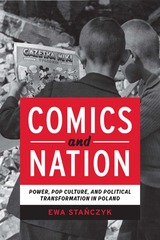
Comics and Nation offers a fresh perspective on the role of popular culture in the one-hundred-year history of the Polish state, from its foundation in 1918 to the present. Drawing on dozens of press articles, interviews, and readers’ letters, Ewa Stańczyk discusses how journalists, artists, and audiences used comics to probe the boundaries of national culture and scrutinize the established notions of Polishness. Critical moments of Poland’s political transformation ––the establishment of the interwar Polish Republic, the Cold War, the liberalization of the 1970s, the 1989 democratic transition, the turn to memory politics in the 2000s––have all been reflected in the history of Polish comics. Stańczyk offers new insights into how the production of homegrown comics and the influx of foreign works enabled commentators to express their fears, hopes, and disillusionment with political, economic, and cultural changes in Poland and beyond. At its core, Comics and Nation rethinks the impact of popular culture and transnational exchange on Polish nation building, citizenship formation, and the legitimation of power.
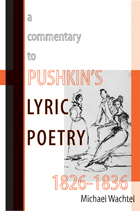
Alexander Pushkin’s lyric poetry—much of it known to Russians by heart—is the cornerstone of the Russian literary tradition, yet until now there has been no detailed commentary of it in any language.
Michael Wachtel’s book, designed for those who can read Russian comfortably but not natively, provides the historical, biographical, and cultural context needed to appreciate the work of Russia’s greatest poet. Each entry begins with a concise summary highlighting the key information about the poem’s origin, subtexts, and poetic form (meter, stanzaic structure, and rhyme scheme). In line-by-line fashion, Wachtel then elucidates aspects most likely to challenge non-native readers: archaic language, colloquialisms, and unusual diction or syntax. Where relevant, he addresses political, religious, and folkloric issues.
Pushkin’s verse has attracted generations of brilliant interpreters. The purpose of this commentary is not to offer a new interpretation, but to give sufficient linguistic and cultural contextualization to make informed interpretation possible.
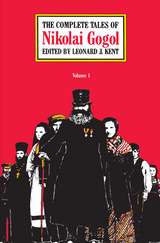
"It is good to have a complete collection of Gogol's tales in paperback. . . . Professor Kent has thoroughly revised Mrs. Garnett's conscientious and skillful translation, eliminating the Victorianisms of her style, correcting mistakes and pruderies of diction, and making the whole translation sound much more contemporary and alive. But he has avoided the whimsicality and 'curliness' in which some recent translators indulged, and he has not changed or suppressed anything material. He has also supplied helpful notes which are often the first annotation in English, and he has written an introduction which steers the correct middle course between making Gogol an irresponsible artist of the grotesque and proving him a documentary historian of backward Russia."—René Wellek, Yale University
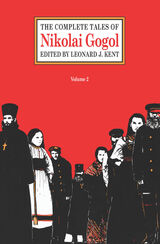
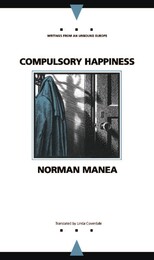
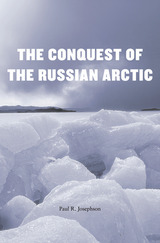
Spanning nine time zones from Norway to the Bering Strait, the immense Russian Arctic was mostly unexplored before the twentieth century. This changed rapidly in the 1920s, when the Soviet Union implemented plans for its conquest. The Conquest of the Russian Arctic, a definitive political and environmental history of one of the world’s remotest regions, details the ambitious attempts, from Soviet times to the present, to control and reshape the Arctic, and the terrible costs paid along the way.
Paul Josephson describes the effort under Stalin to assimilate the Arctic into the Soviet empire. Extraction of natural resources, construction of settlements, indoctrination of nomadic populations, collectivization of reindeer herding—all was to be accomplished so that the Arctic operated according to socialist principles. The project was in many ways an extension of the Bolshevik revolution, as planners and engineers assumed that policies and plans that worked elsewhere in the empire would apply here. But as they pushed ahead with methods hastily adopted from other climates, the results were political repression, destruction of traditional cultures, and environmental degradation. The effects are still being felt today. At the same time, scientists and explorers led the world in understanding Arctic climes and regularities.
Vladimir Putin has redoubled Russia’s efforts to secure the Arctic, seen as key to the nation’s economic development and military status. This history brings into focus a little-understood part of the world that remains a locus of military and economic pressures, ongoing environmental damage, and grand ambitions imperfectly realized.

The Conundrum of Russian Capitalism looks at the nature of Russian capitalism following the fall of the Soviet Union, showing how the system originated in the degenerated Soviet bureaucracy and the pressures of global capital. Ruslan Dzarasov provides a detailed analysis of Russian corporate governance, labour practices and investment strategies.
By comparing the practices of Russian companies to the typical models of corporate governance and investment behaviour of big firms in the West, Dzarasov sheds light on the relationship between the core and periphery of the capitalist world-system.
This groundbreaking study shows that Russia's new capitalism is not a break with the country's Stalinist past, but in fact the continuation of that tradition.
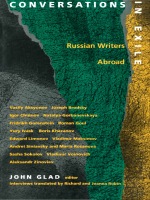
Glad's introduction situates the three distinct waves of westward emigration in their historical and political framework. Organized by genre, the book begins with discussions with the older generation of writers and then moves on to more recent arrivals: the makers of fantasy and humor, the aesthetes, the moralists, and the realists. Each voice is compelling for its invaluable testimony--some reveal startling insights into the persecution of dissidents under Soviet rule while others address the relationship between creativity, writing, and conditions of exile. Taken together these interviews reveal the range of modern Russian writing and document the personalities and positions that have made Russian writers in emigration so diverse, experimental, and controversial.
The Writers: Vasily Aksyonov, Joseph Brodsky, Igor Chinnov, Natalya Goranevskaya, Frifrikh Gorensetin, Roman Goul, Yury Ivask, Boris Khazanov, Edward Liminov, Vladimir Makisimov, Andrei Siniavsky and Maria Rozanova, Sasha Sokolov, Vladimir Voinovich, Aleksandr Zinoviev
Excerpt
John Glad: You're a Russian poet but an American essayist. Does that bring on any measure of split personality? Do you think you are becoming less and less Russian?
Joseph Brodsky (recipient of 1987 Nobel Prize for Literature): That's not for me to say. As far as I'm concerned, in my inner self, inside, it feels quite natural. I think being a Russian poet and an American essayist is an ideal situation. It's all a matter of whether you have (a) the heart and (b) the brains to be able to do both. Sometimes I think I do. Sometimes I think I don't. Sometimes I think that one interferes with the other.
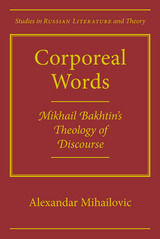
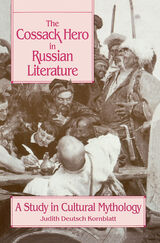
This is the first book to study the development of the Cossack hero and to identify him as part of Russian cultural mythology. Kornblatt explores the power of the myth as a literary image, providing new and challenging readings of Pushkin, Gogol, Tolstoi, and a host of other writers.

Nikolai Gogol, Russia’s greatest comic writer, is a literary enigma. His masterworks—“The Nose,” “The Overcoat,” The Inspector General, Dead Souls—have attracted contradictory labels over the years, even as the originality of his achievement continues to defy exact explanation.
Donald Fanger begins by considering why this should be so, and goes onto survey what Gogol created, step by step: an extraordinary body of writing, a model for the writer in Russian society, a textual identity that eclipses his scanty biography, and a kind of fiction unique in its time.
Drawing on a wealth of contemporary sources, as well as on everything Gogol wrote, including journal articles, letters, drafts, and variants, Fanger explains Gogol’s eccentric genius and makes clear how it opened the way to the great age of Russian fiction. The method is an innovative mixture of literary history and literary sociology with textual criticism and structural interrogation. What emerges is not only a framework for understanding Gogol’s writing as a whole, but fresh and original interpretation of individual works.
A concluding section, “The Surviving Presence,” probes the fundamental nature of Gogol’s creation to explain its astonishing vitality. In the process a major contribution is made to our understanding of comedy, irony, and satire, and ultimately to the theory of fiction itself.
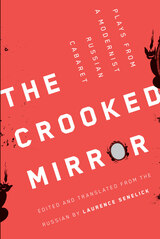
“Don’t blame the mirror if your mug is crooked!”
Parody dominated early twentieth-century Russian cabaret, but the Crooked Mirror extended its lampooning to theatrical practice itself. Eclectic in its targets, the Saint Petersburg theater mocked not only naturalism but also symbolism, futurism, and “Meyerholditis.” Its shows parodied both the stale conventions of melodrama and opera and the stylized trends in staging, wielding satire to provoke artistic and social reform. Though the theater was liquidated in 1931, many of its innovations would become standard techniques in cabaret repertoires and improv revues.
As a cultural phenomenon of the Silver Age, the Crooked Mirror deserves critical attention, yet it has received only fleeting mention in histories of Russian theater and biographies of its major figures. This anthology fills a critical gap in our understanding of that heady era by bringing together key plays—most appearing in English here for the first time—together with short biographies of their authors and robust commentary and annotations. Laurence Senelick guides readers through the artistic and ideological evolution of the Crooked Mirror and provides performers with the material to bring its innovations back to the stage.
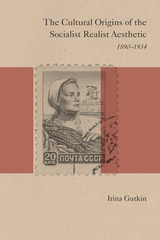
In The Cultural Origins of the Socialist Realist Aesthetic, Irina Gutkin brings together the best work written on the subject to argue that socialist realism encompassed a philosophical worldview that marked thinking in the USSR on all levels: political, social, and linguistic. Using a wealth of diverse cultural material, Gutkin traces the emergence of the central tenants of socialist realist theory from Symbolism and Futurism through the 1920s and 1930s.

The possibilities of generated cultural production have undergone fundamental changes in recent years, leading to a rethinking of existing approaches to the text and the artwork as such. To grasp this process, Zuzana Husárová and Karel Piorecký propose the term “neural network culture,” which captures a wide range of generative practices and reception mechanisms. The Culture of Neural Networks contextualizes the phenomenon of literary texts and other artifacts generated using the latest technological techniques. The generation of literary texts using neural networks is part of a broader cultural process, to which this publication formulates a position through the lens of literary science, media theory, and art theory.
The scholarly debate over this topic has been inconsistent—on the one hand, it underestimates the diachronic connections between generated texts and the tradition of experimental and conceptual literature; on the other hand, it does not sufficiently clarify the new-generation procedures and the contribution of human and technological actors in them. Therefore, Husárová and Piorecký propose the notion of synthetic textual art, which reflects the specific roles of the different actors involved in generative practice and its intermedial nature. In doing so, they approach the topic from both historical and theoretical perspectives, analyzing the current state of generative practice in all three basic literary types and in the intermedial space using selected foreign and Czech-Slovak projects. This state of affairs is often distorted in media discourse and even mythicized in terms of the capabilities of “artificial intelligence”; therefore, a critical analysis of this media discourse is essential. Finally, the authors summarize the implications of this stage in the development of generative practice on creativity theory and literary theory.
READERS
Browse our collection.
PUBLISHERS
See BiblioVault's publisher services.
STUDENT SERVICES
Files for college accessibility offices.
UChicago Accessibility Resources
home | accessibility | search | about | contact us
BiblioVault ® 2001 - 2024
The University of Chicago Press






